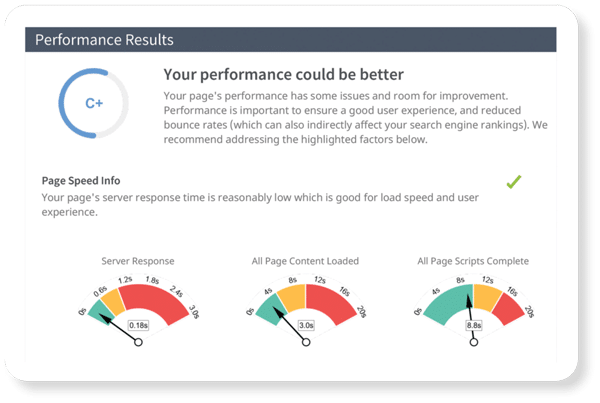All of our MyAdvice clients have heard about the importance of pay per click advertising, but maybe you’re just a little bit fuzzy on how the whole pay per click thing works. That calls for a little Pay Per Click 101 refresher course.
This is SEM, not SEO
Search engine optimization (SEO) vs. search engine marketing (SEM), that’s what we’re talking about here. The suitcase full of things we’re constantly doing to boost your site in organic search — optimizing your site with the proper titles, header tags, meta descriptions, scheme data, optimizing your local listings, and posting on your social media sites — that’s all SEO. And SEO is all about long-term success. Changes we make to upgrade your site’s optimization aren’t usually glamorous overnight successes; they take a few months to show their value in increased site visits, interaction, and page views. Areas we police and correct, such as duplicate content, inconsistent listings, dead-end links, and the like are all meant to keep pushing your site higher in the organic search listings.
In contrast, SEM is SEO’s attention-deficit younger brother. It’s the Cliff Notes version, the living for today because I might be dead tomorrow approach. Search engine marketing utilizes keywords and ad bidding to raise your site’s ranking in paid search results. Also known as pay per click, the highest-ranking sites in paid search are now displayed above organic search on Google, and above and to the right on Bing. With pay per click, you can see results within just a few minutes after opening an account.
What is PPC?
Pay per click listings is primarily paid ads offered by search engines. The difference is the payment/cost mechanisms. Compare PPC to a traditional newspaper ad, for instance. With a newspaper ad, Joe’s House of Donuts has no idea if its ad is read unless it puts some tracking mechanism or coupon in the ad, something like “Bring in this ad for a free cruller.” Still, Joe doesn’t know if others saw the ad and read it and interacted with it (without using the coupon), yet he is charged for the ad based on its size. That price is, in theory, based on numbers of readers, but, even if those numbers aren’t fudged, Joe has no idea if he’s getting his money’s worth out of the ad.
With pay per click, Joe would only be charged when his ad is clicked on and the visitor taken to the landing page designated by Joe. He would be charged the amount of money per click that he agreed to in an auction for certain keywords and search terms. His ranking in those paid search results would depend on how he did in the auction. If 100 people clicked on the ad, Joe would then owe Google or Microsoft 100 multiplied by his bid amount.
But it’s not all wine and roses
Pay per click sounds perfect. After all, if I only pay for someone who already hit my website, then I win. Well, that’s true if “visits” are your only criteria for success. But most practices want appointments, phone calls with questions, or scheduled consultations; they don’t just want website visits.
Let’s say you pay for the keywords “Breast Augmentation,” and your practice is in Beverly Hills. Chances are you’re going to have lots of competitors wanting those same keywords so that the prices will be high. Plus, if your bid amount ranked in the number one or two slots of the paid results you’re going to get a lot of visitors who may not exactly be looking to have breast augmentation, but maybe just came for a peek at your before-and-after galleries. And you’re going to have to pay for all of those visitors who clicked on your ad, even though the vast majority of those visitors have no interest in coming in for breast augmentation at your practice.
That’s why it’s best to have more targeted keywords, better yet “long-tail keywords.” Long-tail keywords involve more specific searches involving more words, hence “long-tail.” For instance, let’s say you’re a Beverly Hills plastic surgeon who is well versed in the newest gummy bear implant type that just came on the market. You could bid on this keyword phrase: Beverly Hills Gummy Bear Breast Augmentation. Those keywords will be far cheaper because far fewer businesses will be bidding on them, and they will generate visitors who’ve already done some research and know the term “gummy bear implants.” These visitors are realistic prospects that could become new patients.
Bidding is price + site quality
The price you are charged may not be the highest price bid. What? Search engines either increase or decrease the bid amount necessary by multiplying it by your site’s “quality score.” If your site has a high-quality score, you could bid a far lower price and still come out in the first or second ad rank position.
That’s why you want a quality site, the only kind we create at MyAdvice. Google, Bing, etc. all weigh things such as the landing page where you’re sending your ad clickers. Is the content valid for the searcher? Is the content rich and original (not plagiarized or duplicated from elsewhere on your site)? Do users hit that page and then click on a further, deeper link? How long do they spend on the page? Those kinds of metrics will affect your quality score.
So, if you have a website with weak content, your quality score will be lower. Same if visitors don’t interact with your site. But if you have rich content, easily searchable pages, helpful tags behind the scenes, a blog with continually new content, and the other tenets of a great website, your quality score will be high, so your pay per click cost can be lower.
As you can see, pay per click seems easy and straightforward on the surface, but using it profitably is somewhat of an art form. Bidding involves certain nuances. Finding the right keywords is a science unto itself. Long-tail searches are great if you can come up with them. Plus, you need to stay on top of your pay per click campaigns.
The problem is you’re busy running your practice. That’s why it’s a good idea to let the team at MyAdvice handle your SEM for you. We know the ins and outs of PPC and how it can best be used (or may not be right) for your practice.
If you want to learn more about pay per click strategies, let’s talk. Call your MyAdvice representative and let’s get clicking!


